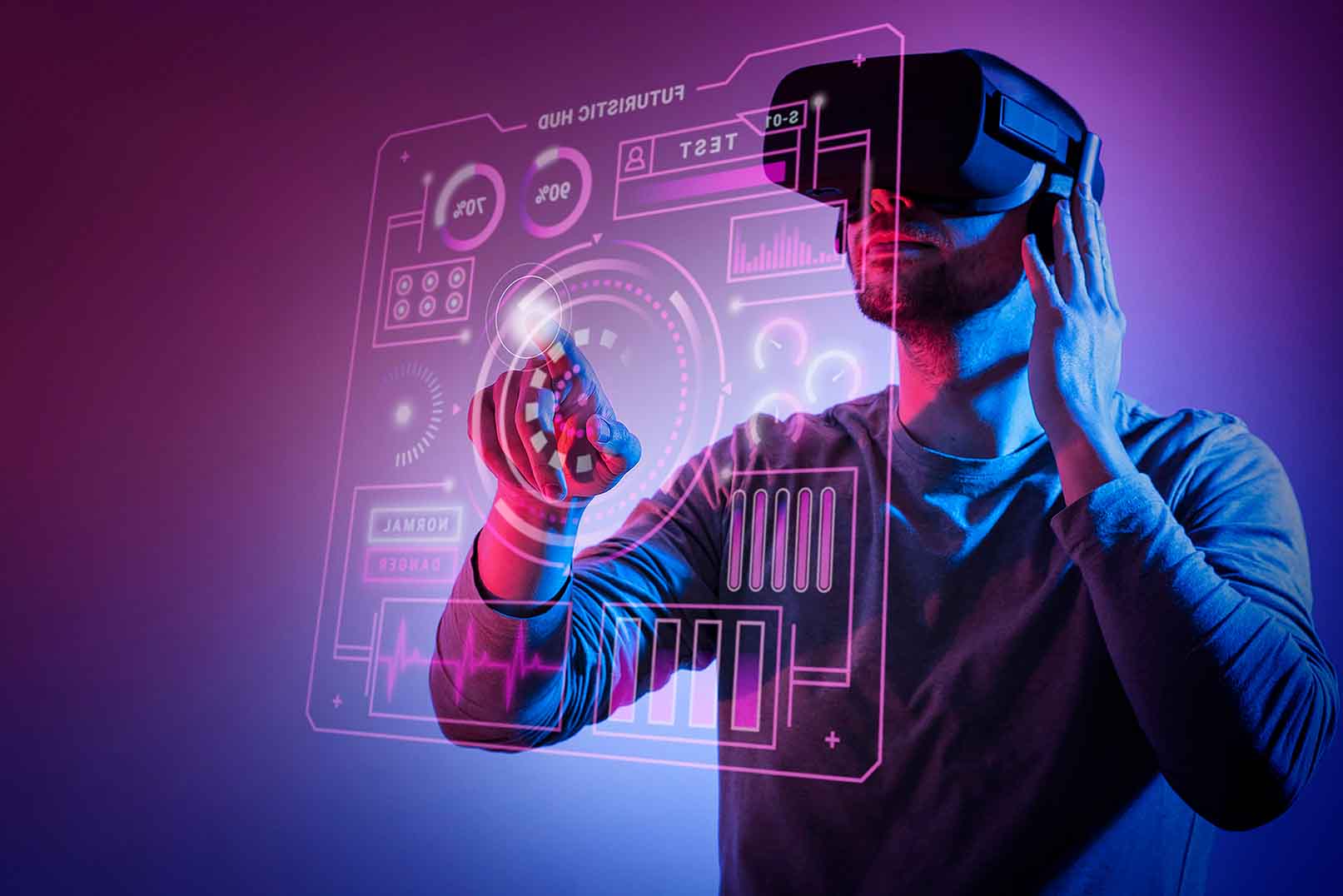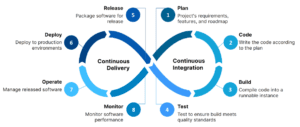The metaverse, often portrayed as a virtual reality space where users can interact with a computer-generated environment and other users in real-time, has captured the imagination of technologists, businesses, and consumers alike. As companies across various industries begin to explore its potential, The metaverse is a rapidly growing digital universe where users can interact with virtual environments and each other in real-time. It has quickly captured the attention of businesses, developers, and consumers alike. But what does the future hold for IT in a world increasingly shaped by the metaverse? Here’s a look at how the metaverse will influence IT’s evolution.
The Rise of Immersive Technologies
The metaverse thrives on immersive technologies like Virtual Reality (VR) and Augmented Reality (AR). These technologies offer new ways for users to engage with digital content, creating richer experiences. As VR and AR devices improve, IT infrastructure must adapt. Networks will need to support more demanding applications and higher data transfer rates.
To meet these challenges, IT systems will need to improve in several key areas. For example, organizations will have to focus on expanding bandwidth to support the demands of virtual worlds and AR/VR applications. Furthermore, hardware will need to evolve to provide smooth, high-quality experiences.
IT Infrastructure for the Metaverse
Building the metaverse requires significant infrastructure improvements. IT systems will need to handle the immense data flow generated by virtual environments. Fortunately, cloud computing, edge computing, and more advanced storage solutions can help meet these demands.
- Cloud Computing: Cloud infrastructure will be key to hosting and managing data in the metaverse. VR/AR applications require real-time data updates, which is where cloud services will shine. These solutions will provide scalability and handle large volumes of data across virtual environments.
- Edge Computing: To reduce latency and ensure smooth interaction in real-time, edge computing will become increasingly vital. By processing data closer to users, edge computing minimizes delays. As a result, IT teams must prioritize integrating edge computing into their networks for optimal performance.
- Data Storage and Management: Managing the massive amounts of data the metaverse will generate is a significant challenge. Traditional data storage methods will struggle with the volume and speed of data. IT professionals will need to adopt innovative solutions like decentralized storage to keep data flowing seamlessly.
Security and Privacy in the Metaverse
The metaverse will introduce new security and privacy challenges. Virtual worlds, digital identities, and assets will need protection from hackers and other malicious actors. IT professionals must work to keep these environments safe and secure for users.
- Digital Identity Protection: In the metaverse, users will operate through avatars. These digital identities will need to be protected. IT teams must ensure that users’ personal data and virtual assets are secure from cyberattacks.
- Data Privacy: With more personal data being shared in virtual spaces, maintaining privacy will become crucial. IT security teams will need to develop encryption and privacy protocols to keep users’ information safe. Moreover, they will need to ensure compliance with global regulations, like GDPR.
- Cybersecurity Threats: As the metaverse grows, it will attract more cybercriminals. IT security must evolve to defend against these new threats. This will involve creating sophisticated threat detection systems, fraud prevention measures, and virtual asset protection protocols.
The Role of AI and Machine Learning
Artificial Intelligence (AI) and Machine Learning (ML) will be integral to the metaverse’s development. These technologies can enhance user experiences and optimize virtual environments.
- Personalized Experiences: AI will enable personalized interactions within virtual spaces. By analyzing user behavior and preferences, AI can create customized experiences. For IT teams, integrating AI into the metaverse means designing systems that can process vast amounts of data in real time.
- Virtual Assistants and Moderation: AI will also help manage virtual environments. AI-driven virtual assistants can guide users and provide information. Additionally, AI will be used for content moderation, ensuring that interactions remain safe and appropriate.
- Behavioral Analytics: ML can track and predict user behavior, making the metaverse more interactive. These insights can improve user engagement and help prevent fraudulent activities. IT professionals will need to ensure that these systems run efficiently and securely.
Impact on IT Jobs and Skills
As the metaverse grows, it will reshape the IT job market. With the rise of new technologies, IT professionals will need to adapt. Roles related to immersive technologies, AI, and cloud computing will see increasing demand.
- New Roles in Immersive Technology: VR/AR developers, 3D modelers, and immersive experience designers will be in high demand. IT teams will need experts in these fields to build and maintain metaverse platforms.
- Cybersecurity Experts: As digital assets and identities grow in importance, cybersecurity will become a critical area. IT security professionals will need to develop new strategies to protect users in virtual spaces.
- AI and Data Scientists: Machine learning and AI will drive the metaverse. Data scientists and AI experts will be essential for creating the algorithms that make virtual environments interactive and personalized.
- Cloud and Edge Computing Engineers: With the metaverse depending on cloud and edge computing, there will be a need for experts in these fields. IT teams will need to design systems that can handle the high demands of virtual worlds.
Conclusion: A New Era for IT
The metaverse is poised to change the world of IT. From immersive technologies like VR and AR to AI, cloud computing, and advanced security systems, the future of IT will be deeply intertwined with the metaverse. The shift will create exciting opportunities for IT professionals to innovate and adapt.
For businesses and IT teams, the metaverse offers a chance to lead the way in shaping the digital future. However, it also presents challenges in infrastructure, security, and user experience. As this new digital frontier unfolds, the role of IT will be more crucial than ever in creating seamless, secure, and engaging virtual environments.




